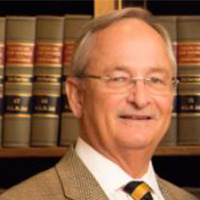Searcy Misdemeanor Lawyer, Arkansas
Not enough matches for Searcy Misdemeanor lawyer.
Below are all Searcy Criminal lawyers.
David Wallace Parker
✓ VERIFIED *Status is reviewed annually. For latest information visit hereFormer prosecutor, David Parker, joined Dodds, Kidd, Ryan & Rowan in 2017. After graduating from UALR William H. Bowen School of Law in 2008, David w... (more)
Judson Candler Kidd
✓ VERIFIED *Status is reviewed annually. For latest information visit hereI was exposed to law at an early age as my grandfather and father were trial lawyers, grandmother was a court reporter and my uncle was a US Marshall.... (more)
Catherine A. Ryan
✓ VERIFIED *Status is reviewed annually. For latest information visit hereLittle Rock native Catherine Ryan joined Dodds, Kidd & Ryan in 2016 after fourteen years representing injured parties as a trial lawyer in Boston, Mas... (more)
Lucas Zachary Rowan
✓ VERIFIED *Status is reviewed annually. For latest information visit hereLucas Zachary Rowan is a practicing lawyer in the state of Arkansas handling personal injury, criminal and family law matters.
Robert Alston Newcomb
✓ VERIFIED *Status is reviewed annually. For latest information visit hereMr. Newcomb proudly represents clients in need of Criminal and Employment matters.
Jacob Ian Wickliffe
✓ VERIFIED *Status is reviewed annually. For latest information visit hereBrad J. Williams
FREE CONSULTATION
CONTACTLaura Robertson
FREE CONSULTATION
CONTACTDavid W. Kamps
FREE CONSULTATION
CONTACT





